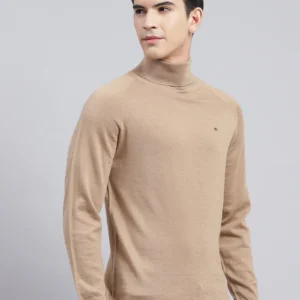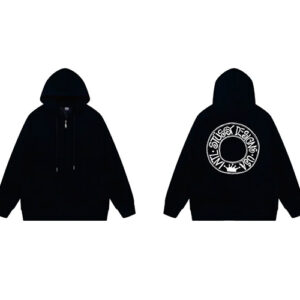Sticky strips have long been a fixture in athlete toolkits. Kinesiology tape, the colorful, elastic tape athletes slap onto shoulders, knees, and backs, promises support, proprioceptive feedback, and faster recovery without locking a joint into a brace. Now, a new hybrid product has arrived on the market: kinesiology tape infused with cannabidiol (CBD).
Combining the mechanical benefits of taping with the anti-inflammatory and analgesic reputation of CBD, these products market themselves as one-step support-and-soothe solutions. But what’s hype, what’s helpful, and what should you watch out for? Here’s a look at the trend, the science, and the practical considerations.
What is CBD-infused kinesiology tape?
CBD-infused kinesiology tape is, at base, ordinary elastic therapeutic tape that has been formulated or coated with cannabidiol (CBD) — either as an oil, microencapsulation, or another delivery vehicle — so that the cannabinoid is intended to transfer to the skin while the tape is worn.
Several companies now sell “CBD sports tape” or “CBD KT tape” in rolls or pre-cut strips aimed at athletes and weekend warriors alike. The marketing claim is simple: the tape provides the mechanical lift and sensory feedback of kinesiology tape while delivering CBD locally to reduce inflammation and pain.
Why the idea makes sense (on paper)
Two separate mechanisms at work make the combo appealing. First, kinesiology tape is thought to work by lifting the skin slightly, stimulating skin mechanoreceptors (sensory nerves), improving proprioception, and potentially aiding lymphatic drainage.
Effects that can reduce perceived pain and support movement patterns. Clinicians and many users report short-term pain relief and improved awareness of the taped area, though the literature is mixed.
Second, CBD has shown anti-inflammatory and analgesic properties in lab and animal studies, and early human research on topical and transdermal CBD is growing. Newer delivery technologies (nanoformulations, encapsulation, patches) aim to improve skin penetration and sustained release, which matters because the skin is a pretty good barrier.
In principle, a CBD-Infused Kinesiology Tape that maintains contact for hours could serve as a long-wearing topical delivery system. That synergy — mechanical support plus sustained local CBD delivery, is the product pitch.
What the evidence actually says
This is where reality gets cautious. Research into kinesiology tape shows mixed results: some meta-analyses and trials find short-term pain reduction and small benefits for certain conditions (e.g., patellofemoral pain, neck pain).
While other systematic reviews conclude there’s no consistent, clinically meaningful effect beyond placebo for many musculoskeletal issues. In other words, KT tape can help some people in some scenarios, but it’s not a magic bullet.
Similarly, while topical CBD has promising preclinical anti-inflammatory effects and some early human studies (and ongoing trials) on transdermal patches and topicals, robust, large-scale clinical evidence for using CBD specifically to treat sports injuries, speed muscle recovery, or replace standard anti-inflammatories is still limited.
Many studies are small, exploratory, or focused on specific skin conditions; few address CBD delivered via kinesiology tape specifically. Be skeptical of bold clinical claims until more controlled human trials are available.
Safety, legality, and the regulatory wrinkle
Legally, CBD (from hemp) occupies a grey area in many markets. Importantly for athletes: the World Anti-Doping Agency removed pure cannabidiol (CBD) from its prohibited list in 2018 — meaning CBD itself is not banned — but other cannabinoids (notably THC) remain prohibited and can cause a positive test. That creates a risk: over-the-counter CBD products sometimes contain undeclared THC or inconsistent CBD doses, which could be problematic for tested athletes.
On the regulatory front, the FDA in the United States has repeatedly warned that it has only limited safety data on CBD products and has taken action against products making unproven medical claims. The agency has also emphasized problems with inconsistent labeling and contamination in the market and has called for clearer regulation. In short, products can vary widely in quality and content, and claims about therapeutic benefits are often ahead of the science.
Practical tips if you’re curious to try it
Buy from reputable brands and look for third-party testing. Certificates of analysis (COAs) that show cannabinoid profile and contaminants (pesticides, heavy metals) are important. Several niche brands already sell CBD-infused sports tapes — check their testing.
Check the cannabinoid content. Many tapes use CBD isolate (pure CBD) or broad/full-spectrum hemp extracts. Full-spectrum products may contain trace THC — a concern for competitive athletes.
Use as an adjunct, not a replacement. Consider CBD tape as a potential additive tool within a broader rehab and recovery plan (exercise, loading programs, rest, manual therapy), not a stand-alone cure. Evidence supports tape as an adjunct in some cases, and CBD science is still emerging.
Watch for skin reactions. Any prolonged adhesive contact can cause irritation or allergic responses, and CBD formulations or carrier oils might exacerbate that for sensitive skin. Test a small patch first.
If you’re an athlete undergoing drug testing, be cautious. Even if CBD itself is permitted, contamination is a practical risk. Use products with transparent, recent third-party testing and talk to your sports medicine provider or doping control officer.
The bottom line
CBD-infused kinesiology tape is an intriguing hybrid: it pairs a decades-old physical modality with a modern ingredient that’s captured public imagination. The combination is logical and has a fan base, and incremental technological advances in CBD delivery make the product more plausible than a simple oil rub. But the strongest claims on packaging often run ahead of definitive science.
For people seeking modest pain relief or a convenient topical delivery system, the tape may be worth trying — provided you choose quality products, manage expectations, and remember that the evidence is still evolving. Regulators, researchers, and clinicians will likely keep watching this space until large, high-quality trials appear; treat CBD tape as an experimental, not guaranteed recovery tool.




